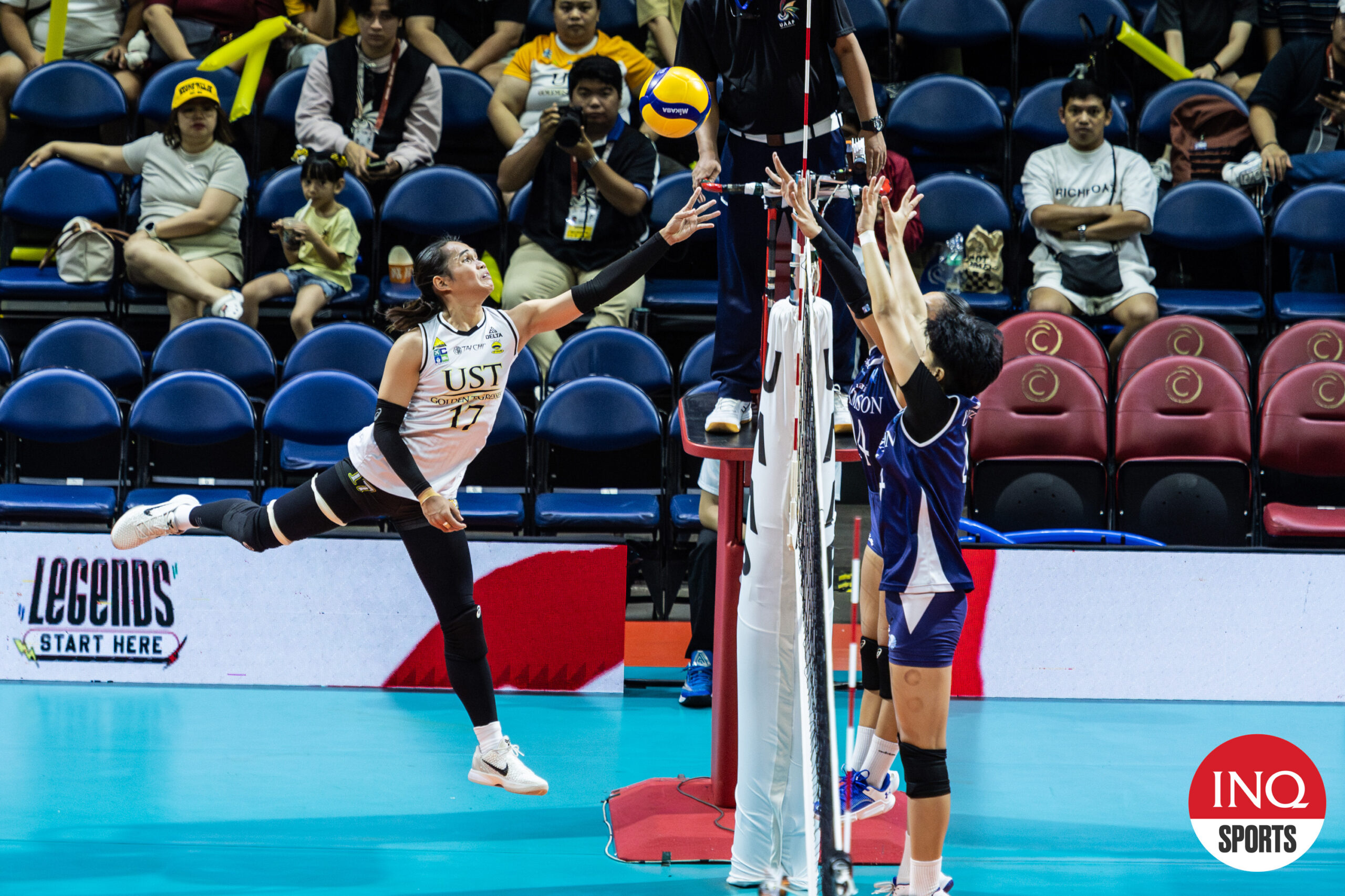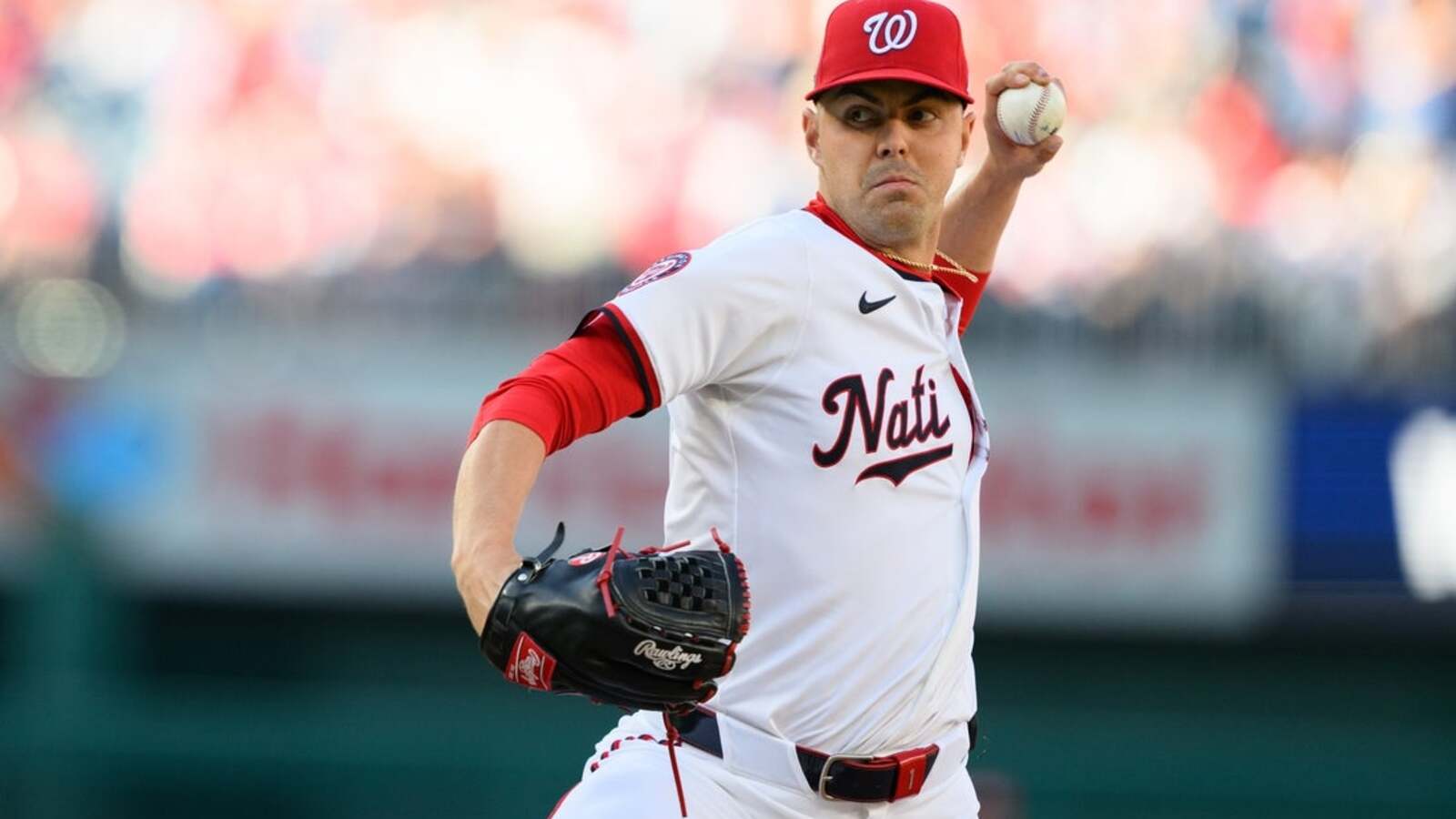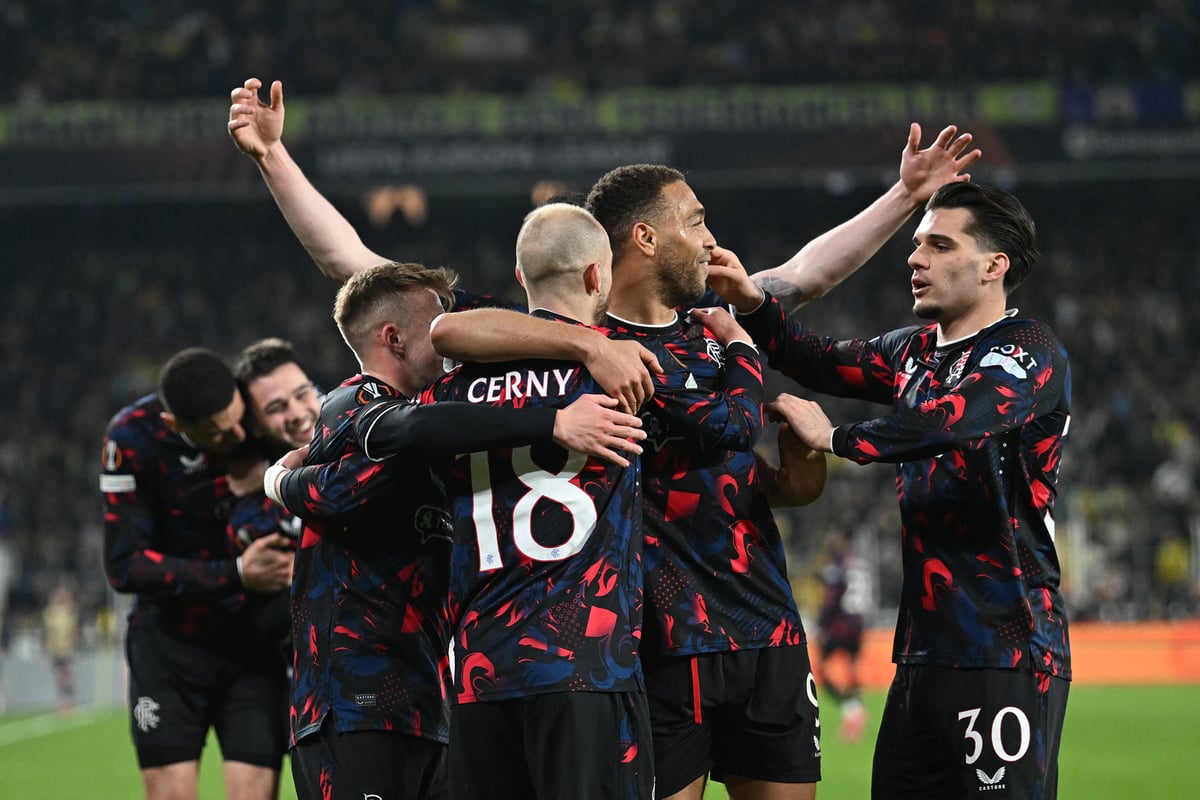
The president of Finland is towering, lean and athletic and holds a doctorate from the London School of Economics. So I am not entirely convinced when Alexander Stubb tells me that he is struggling “to put sentences together” after an overnight flight from Florida and a day spent with Donald Trump . Sure enough, Stubb has lost none of his verbal fluency as he describes his encounter with America’s president, and how it has left him guardedly optimistic about the next moves in Ukraine and the strength of the Atlantic alliance.
Instead of fretting about Trump, Stubb believes that Europeans should “calm down, take a nice bath, take a sauna, take a deep breath” and “engage rather than disengage”. He is in town presumably to pass on just that message to Sir Keir Starmer . Stubb’s advice is worth listening to.

Back home, he leads a country fated by geography to engage with a deeply threatening neighbour. Finland has Europe’s longest border with Russia – running for 830 miles through a vista of pine forests and frozen lakes – and only 5.6 million people, barely 4 per cent of Vladimir Putin ’s 144 million subjects.
Despite that perilous combination and a bitter history of 30 Russo-Finnish wars, the frontier remains quiet and Finns sleep soundly in their beds; in fact, their country has been ranked the happiest in the world in 2025 – for the eighth year running. As I go to meet him at his London hotel, I want to discover how Finland has managed to crack the problem of living alongside Russia without being invaded. Now that Putin is forcing every European country to study this conundrum, what can Europe learn from Finland? As he greets me, Stubb introduces himself as “Alex” but throughout our conversation I feel more comfortable calling him “Mr President”.
Behind his oval glasses, cheery demeanour and diplomatic finesse, there is steel and determination. He is quick to describe his meeting this weekend with Trump. He went to see the American on his home ground: Mar-a-Lago estate in Florida.
“I had the opportunity to spend almost the whole day with the president,” says Stubb. “We had breakfast, we played a round of golf and then we had lunch afterwards. A good opportunity to get to know each other, to socialise, and then discuss a little bit of shop.
” On this mission, Stubb had one key advantage. As a young man, he was a prodigiously talented golfer, so much so that he secured a golf scholarship at Furman University in South Carolina. “When I was young, I had a dream of becoming a golf professional – that’s why I went to study in the US,” he recalls.
“But I quickly learnt that I wasn’t good enough.” His abilities may not have run to turning professional, but they were good enough to put the US president in a fine mood. “Just played a round of golf with Alexander Stubb, President of Finland,” Trump noted on his Truth Social account.
“He is a very good player, and we won the Men’s Member-Guest Golf Tournament at Trump International Golf Club.” “We did our best and did well,” was Stubb’s modest summary of an evidently successful bit of “golf diplomacy”. But if by Trump’s account the golf was a joint triumph for Finland and America, what about the diplomacy? Is Trump now listening to Europe on Ukraine? “I think so,” replies Stubb, “and mainly because he has close connections with Prime Minister Starmer and [French] President Macron.
At the same time, I have a sense that time is running out for Russia. There is this sense of urgency on the American side. Remember that the Americans brokered an overall ceasefire which was accepted by the Ukrainians and the Europeans – but then not accepted by the Russians.
” On March 11, Ukraine accepted an unconditional 30-day ceasefire and Marco Rubio , the US secretary of state, declared: “The ball is now in Russia’s court.” Yet Putin responded by proposing a far narrower ceasefire, limited to energy infrastructure and Black Sea shipping, and only if new conditions were met. Stubb believes that Russian intransigence is now registering with the US.
“I think we’re very much in a situation whereby the Americans are running out of patience with Putin for understandable reasons and I think that’s good news for the peace process.” I ask how America should respond if and when Putin exhausts their patience. “What we need is a very clear deadline for a full ceasefire,” replies Stubb.
“In my mind it would be useful to have it on April 20, when President Trump’s second term has been in force for three months and it’s Easter. “If that ceasefire is either not accepted by the Russians, or broken by the Russians, then there should be colossal sanctions coming from both the United States and from Europe because the only thing that Russia understands is power. I think many of our American friends are starting to see that as well.
” What sanctions would you recommend? “I’m not going to give any advice to the United States except look at the sanctions which will be put forward by Senator Lindsey Graham in the Senate next week,” replies Stubb. Graham, a Republican from South Carolina, is expected to propose a bill containing what he calls “bone-breaking sanctions” on Russia. As for what those measures might include, Trump said on Sunday that if Russia failed to make a deal on “stopping the bloodshed in Ukraine” and “if I think it was Russia’s fault” then: “I am going to put secondary tariffs on oil, on all oil coming out of Russia.
” This probably means that America would try to cripple Russian oil sales by imposing punitive tariffs on any importing country. Trump was speaking shortly after Stubb’s visit, suggesting that the Finn’s message had struck home. Stubb has no doubt that Russia’s economy remains Putin’s Achilles’ heel.
“We have to understand that the Russian economy is actually hurting and we need to continue to hurt it as much as we possibly can because that then becomes an incentive for Putin perhaps to join the negotiations,” he says. That raises the question of whether Europe should seize the €230 billion (£190 billion) of Russian assets lying frozen in the Continent’s banks. “Definitely,” replies Stubb, noting that most of the funds are held in Belgium.
“But unfortunately the president of Finland doesn’t decide on behalf of Belgium. But I do think that there are two things you do to maximise pressure on Russia: one is sanctions and the other is using the frozen assets.” When it comes to maximising pressure on Russia, Finland has consistently been hawkish, despite its long border with its neighbour.
I wonder how Finland has the confidence to challenge Russia so robustly. So I ask Stubb how quickly his country could prepare in the event of advance notice of a Russian attack. “We are prepared,” he replies simply.
After “having access to all key information”, Stubb says: “I sleep my nights well, I’m not worried.” So how quickly could you mobilise if necessary? “Put it this way,” replies Stubb, with an air of assurance, “in Finland we have obligatory military service for men, voluntary for women. We have 900,000 men and women who’ve done it, including myself in 1988-89 and my son last year.
“We have 280,000 men and women in reserves that we can mobilise within weeks. We have 62 F-18 fighter jets, we just bought 64 F-35s. We have long-range missiles – land, air and sea.
We have the biggest artillery in Europe together with Poland. And we don’t have these things because we’re worried about Stockholm.” The last words come with an ironic smile.
But Finland’s relentless focus on national security originates in a traumatic history. In the 18th century, Russia’s wars in Finland were so ferocious that they were known as the “Years of Wrath”. In 1808, Russia conquered Finland and kept it within the Tsarist empire until the Bolshevik Revolution in 1917.
When Stalin tried to extinguish Finland’s independence by invading in 1939, the Red Army encountered ferocious resistance in snow-bound pine forests. Finnish forces, led by their superb commander, Carl Gustaf Mannerheim, overcame formidable odds and halted the Soviet advance. One Finnish sniper, Simo Hayha, dispatched about 500 Russian soldiers.
This tenacious resistance preserved Finnish statehood, but the Winter War ended in 1940 with the loss of about 10 per cent of the nation’s territory. Stubb’s family felt the consequences: his father and paternal grandparents were born in the area relinquished to the Soviet Union. During the Cold War, Finland retained its independence but not sovereignty.
The Soviet Union effectively prevented Finland from joining Western organisations such as the European Union or Nato. The term “Finlandisation” entered the lexicon to describe a country whose freedom of action was strictly circumscribed. Only after the Soviet Union’s collapse was Finland able to join the EU in 1995 and Nato in 2023 .
So Stubb reacts with grim amusement when I ask him whether Europe needs to become more like Finland. “The positive Finlandisation of Europe!” he exclaims. “Why not!” He adds: “I think we [Europe] have woken up and smelt the coffee and it’s because of two things: one is the world political situation and the security situation in Europe.
This already started in 2022. And the other reason is, of course, a changing transatlantic partnership. Both of them are incentives for us to take care of our own defence, or our own security more.
” The new imperative gives Britain a vital role in the defence of Europe. “Britain is back,” says Stubb emphatically. “We’re seeing a closer tie between the United Kingdom and the Continent proper.
It’s a very pragmatic relationship which has to do with security, defence, it has to do with intelligence sharing, which of course we’ve always had. It has to do hopefully in the long run with closer economic and institutional ties. So this is certainly not a lost opportunity for having Britain back in Europe in a good kind of a way.
” Stubb has a personal connection with Britain: his wife, Suzanne, comes from Solihull in the West Midlands. “She now has dual [British-Finnish] nationality and actually speaks both of our national languages – Finnish and Swedish,” he says. “She’s obviously much more popular than I am in Finland.
” Stubb, 57, met his wife when they were studying at the College of Europe in Bruges in 1994. He later took a doctorate in international relations at the London School of Economics before working as a fonctionnaire at the European Commission. Stubb was elected to the European Parliament in 2004 as a member of the centre-Right National Coalition Party.
After one term as an MEP, he was appointed Finland’s foreign minister in 2008, rising to become prime minister in 2014. In January last year, he was elected the country’s 13th president, with 51.6 per cent of the vote.
Today, his two children – dual British-Finnish nationals – are both studying in Britain. Stubb’s British parents-in-law came to stay in Helsinki last year for what turned out to be an eventful Christmas. “For Finns, Christmas is on the 24th, so we celebrate and eat in the Finnish style on Christmas Eve, as you would say, and then we celebrate and eat in the UK style on Christmas Day,” says Stubb.
The Finnish half of the celebration went without a hitch, but on the 25th “as we were finishing the Christmas pudding” Stubb was suddenly alerted to a tanker called Eagle S , laden with Russian oil, dragging its anchor along the Baltic seabed and cutting vital cables. “The messaging was a little bit on the heated side, so I had to excuse myself for a while,” recalls the president. He authorised Finland’s authorities to direct the tanker to sail into their territorial waters, where the ship was intercepted and placed under investigation.
“Fortunately the Finnish authorities sorted it all out,” is Stubb’s laconic summary of this brief crisis, adding that he was able to rejoin his family for their evening festivities. But future emergencies could be far more dangerous. Finland joined Nato shortly before Trump’s second election challenged the future of the alliance.
I ask how Stubb would respond to future historians who might conclude that Finland joined Nato at exactly the wrong moment. “I’m not a historian, I’m a political scientist,” replies Stubb bluntly. “And as a political scientist and [with] a PhD in international relations, I would have preferred Finland to have joined Nato in 1995.
” But he adds: “I think there’s never a bad time to join Nato. It is the most successful military alliance in the history of mankind and I hope it continues to be so.” As for Finland’s unique posture towards Russia, Stubb says: “I think that everyone, all of our allies, knows that Finland is more of a security provider than a security consumer.
The Americans understand that. And one of the main aims of our conversation with the president – who was very well briefed about Finland – was to make clear why it’s quite useful to have one of the largest militaries in Europe bordering Russia, especially after the alliance has just doubled its border with Russia.” But Trump has repeatedly questioned America’s commitment to Article V of the North Atlantic Treaty, which binds Nato allies to defend one another.
I ask bluntly: do you trust America to come to Europe’s defence as per Article V? “I trust our alliance. I trust the Americans,” says Stubb. “I have seen no indication of other things coming as far as Article V and Nato is concerned.
The fact that Trump is correctly putting pressure on European states to increase their defence expenditure doesn’t mean that they’re withdrawing from Nato. Quite the contrary. I think we need to ask for a reverse-Kennedy: ask not what the Americans can do for you, ask what you can do for America.
” I remark on how sanguine he seems about Trump. “I am an avid transatlanticist and I want to maximise American engagement in Europe,” replies Stubb. “At the same time, I’m a realist in the sense that I understand that when things are changing, you need to do something about it.
So I’d say: talk less, do more. Whine less, engage more. And that’s what I’ve tried to do in my relationship with the United States.
It’s our job to make sure that America stays engaged in Europe.” In that task, the golf diplomacy of Finland’s president has its vital place..















